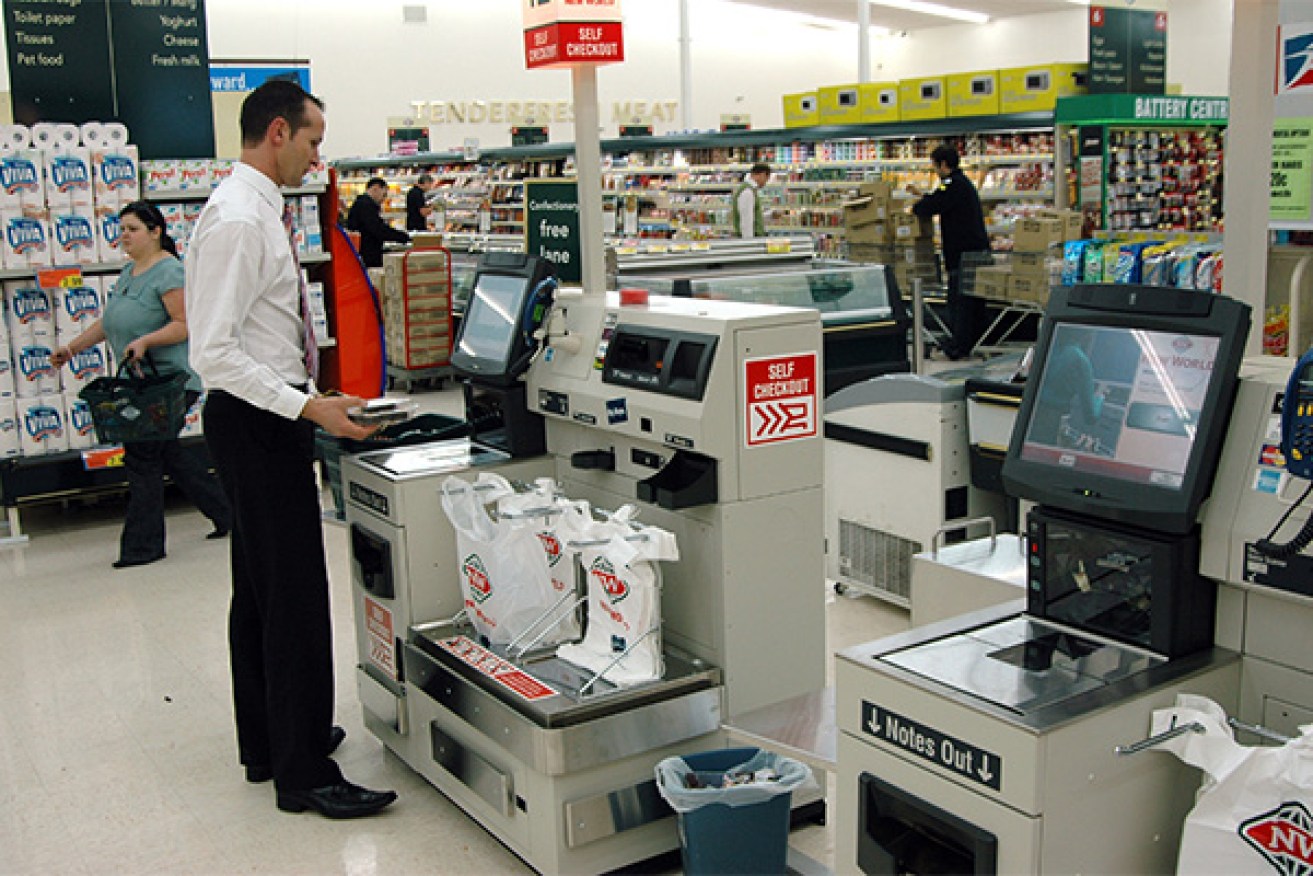Are we a nation of self-service thieves?

Self-service checkouts have been linked to theft since increasing in popularity. Photo: AAP
Emily* had never stolen a thing in her life but after self-service checkouts were introduced to supermarkets she has found herself routinely taking an item or two without paying. She has the money, but the new checkout arrangements “make it so easy”, she says.
“Now I take items every now and again,” she told The New Daily. “The ones that are overpriced, including meat, cheese, and cleaning items.”
She says she is afraid of being caught but nevertheless steals because the opportunity is there and “it’s my little way of fighting the system”.
• The rise of generic brands
• How buying apples could make banking cheaper
Casual theft on the rise?
Self-service checkouts were introduced in 2009 and may have enabled the latent thief in some people.
Local research is scarce but anecdotal evidence suggests everyday consumers are swiping anything from a couple of apples to chocolate and toiletries.
Earlier this year a UK study by coupon redeeming website Voucher Codes Pro found one in five people steal at the checkout in a widespread problem that’s costing British supermarkets $3 billion a year.
The survey asked 2634 people aged 18 and over about their shopping habits and use of self-service checkouts. More than half claimed they first began taking goods because they couldn’t get an item to scan and 19 per cent admitted stealing regularly.
The main reasons behind stealing included being less likely to get caught, not having enough money, and the ease of fooling the machine.

Self-service checkouts make it easy for some people to justify steealing. Photo: AAP
Supermarket losses
Russell Zimmerman, executive director of the Australian Retailers Association, says shop theft puts a dent of three per cent or about $7 billion in local retail each year, but says it is difficult to determine exactly how much supermarkets are losing.
During the 2012-2013 financial year, Coles recorded revenue of $36 billion while Woolworths netted $59 billion. On those figures, shop theft is costing the big supermarkets almost $3 billion annually.
A spokesperson for Woolworths would not reveal losses at the register or measures being taken to curb the headache.
“The vast majority of our customers do the right thing. Of course, there will always be a tiny minority of people who choose to break the law and shoplift,” the spokesperson said.
“Woolworths takes steps to reduce shoplifting across our stores and people caught stealing are handed over to police.”
Coles trotted out a similar line but suggested shoplifting was “not a major issue” since its first self-checkout service was unveiled in a Port Melbourne supermarket in Victoria back in 2009.
“We have seen significant benefits, with shorter queues and faster ways to pay – all of which make life a little easier for our customers,” a Coles spokesperson said.
The big steal
Mr Zimmerman of the ARA believes the addition of self-checkouts has made it easier to steal.

People are clever about what items they steal. Shutterstock
“The self-checkouts that we’ve got now certainly have created an opportunity for people to actually steal goods,” he said.
Dr Rohan Miller, senior lecturer in Marketing at the University of Sydney, agreed the new technology had potentially triggered more theft.
“The temptation’s there,” Dr Miller said.
“The plausibility of the excuses can increase in terms of ‘I tried to scan it and it didn’t scan’ or ‘I thought it scanned’ or ‘I bought two of them instead of one of them’.”
Dr Miller said many supermarkets were trying to limit the problem by improving security. He said the trend towards more sophisticated technology would continue and most likely eliminate casual theft when superior measures were put in place.
Consumers end up footing the bill
Mr Zimmerman said the greatest cost retailers incur was labour and the introduction of self-checkouts was simply part of commercial realities.
“You’ve got to look for ways in which you can cut those costs,” Mr Zimmerman said. “Now it’s not very palatable to stand there and say you’ve got to reduce it by reducing staff but it’s a fact of life because there’s very little option for most retailers.”
He said theft was a complex issue often more prominent during tough economic times.
He warned people who were stealing items that their fellow consumers would pay for it in the long run through higher prices.
“You’ve got the vast majority of very honest people out there and you’ve got a very small minority of people who are that way inclined,” Mr Zimmerman said.
“There are people who will try [and steal] at every opportunity. It wouldn’t matter if you had self-checkouts or some other form of doing it. They will try to beat the system.”
* Not her real name.








